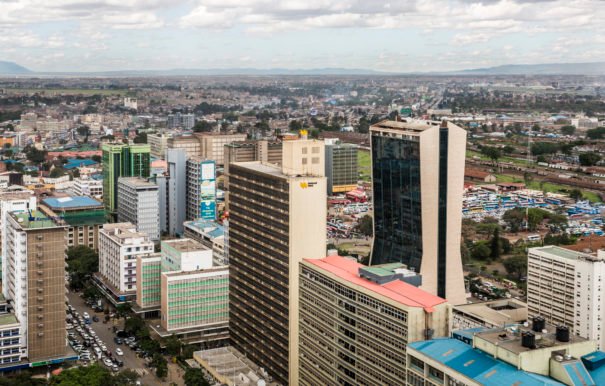
Skulduggery, Slogans, Spin, and, Just Maybe, a Revolution

Skulduggery, Slogans, Spin, and, Just Maybe, a Revolution

Drinking in Nairobi
Outside temperatures in Nairobi have plummeted, but the political mercury is rising fast as Election Day approaches. Ballot papers have landed and final campaigns are underway; the country is waiting with bated breath to see which way the pendulum will fall.
The election pits incumbent President Uhuru Kenyatta, hoping to secure a second five-year term, against opposition leader and long-time rival Raila Odinga. (There are also other contenders.) The polls are close. The threat of violence—and the echo of 2007’s election crisis—looms over the proceedings.
Some time last year, in the course of my quest for literary immortality, I found myself in an upmarket watering hole in leafy suburbia in the company of some distinguished Kenyan gentlemen. One was ex-Alliance, another was ex-St Mary’s, those bastions of academic excellence that prepare the nation’s finest young minds for future leadership. Fine malt whisky flowed freely; book recommendations for my intellectual uplift were made: Dostoyevsky and Nabokov. The nervous waiter mixed up the bills and this really upset one of the gentlemen, who said: “These are what we call lumpen.” He then turned to the waiter and said forcefully, “You are a LUMPEN!” To my eternal disgrace, I said nothing. It is unlikely that I will breathe in that rarefied air again after this, but so what. To hell with “access.” To hell with self-serving ambition. May the bridges I burn light my way.
I’ve been thinking about the nameless and faceless masses trampled underfoot in the mad scramble for power, the nebulous “lumpen” sacrificed at the altar of political expediency. The marginalized and invisible Kenyans whose stories never make the news. People like S. Mutwali, a resident in Marakwet East, who wants the government to bring security to the area “so that I can be a Kenyan like others”, he said.
Politicos, pollsters, and pundits of all stripes have been hogging the airwaves. Amidst the skulduggery, slogans, and spin, I’ve been struggling to look beyond the demagoguery to see how the issues that Wanjiku—the common woman—cares about are being addressed. The alienation between Wanjiku and the ruling class is evident. The groundswell of discontent came to the fore over the price of unga, maize flour that is used to make ugali, Kenya’s staple, the rising high cost of living just one of a string of broken election promises.
One astute commentator, Wamugunda Wakimani, in an incisive examination of Kenyan leadership, once wrote that a fellow who has never travelled in a matatu, used a pit latrine, lived without water, gone barefoot, or dealt with a jigger may not truly understand Kenyans. He wrote also that a people’s revolution would entail getting Kenyans to understand that money, genetic heritage, and tribal affiliation are not what makes a leader.
The political and economic elite exist in a different realm, they literally hover above—in their choppers, the ultimate status symbol. Politics is seen as a path to power and personal enrichment, instead of social and economic development for all. But a friend tells me that Wanjiku has “chanuka’d”—smartened up: she will accept handouts indiscriminately, but when Election Day comes, she will take her outrage to the ballot.
The Nairobi proletariat is getting ready to head home, i.e. upcountry, some to vote in the rural constituencies where they are registered, some to be close to family in case things go south. The contested elections of 2007—and their bloody aftermath—remain in the collective consciousness, and justice for those killed back then is yet to be served.
Voting takes place on Tuesday, and results are due to be announced on Wednesday morning. My fervent hope is for the peaceful triumph of the people’s will—that the “lumpen” strikes back.